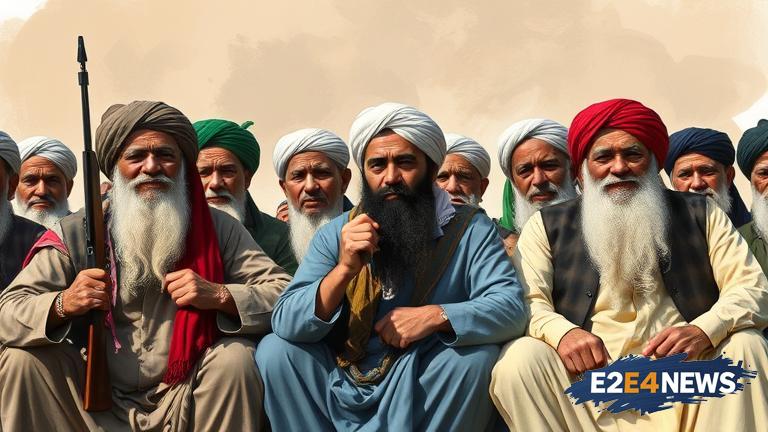In a recent development, tribal elders from the Bajaur and Mohmand agencies have come together to voice their opposition to a potential military operation in the region. The elders, who represent various tribes and communities, have expressed deep concerns over the potential consequences of such an operation, including civilian casualties, displacement, and damage to infrastructure. They have urged the government to explore alternative solutions to address the security concerns in the region. The tribal elders have also emphasized the need for a peaceful resolution to the conflict, citing the region’s history of violence and instability. They have called upon the government to engage in dialogue with local leaders and stakeholders to find a mutually acceptable solution. The opposition to the military operation is not limited to the tribal elders, as many local residents have also expressed their concerns and fears about the potential consequences of such an action. The region has already experienced significant violence and instability in recent years, and many fear that a military operation could exacerbate the situation. The government has not yet commented on the opposition to the military operation, but it is likely that the concerns of the tribal elders and local residents will be taken into consideration. The situation in Bajaur and Mohmand is complex, with multiple factors contributing to the security concerns in the region. The presence of militant groups, poverty, and lack of economic opportunities have all played a role in creating an environment conducive to violence and instability. The tribal elders have emphasized the need for a comprehensive approach to address these underlying issues, rather than relying solely on military force. They have also called for greater investment in education, healthcare, and economic development in the region. The opposition to the military operation is not only driven by concerns over civilian casualties and displacement but also by a desire to see a more sustainable and long-term solution to the region’s security concerns. The tribal elders have suggested that a combination of dialogue, economic development, and community-led initiatives could be a more effective way to address the security challenges in the region. They have also emphasized the importance of respecting the rights and dignity of local communities, and ensuring that any solution is tailored to the specific needs and context of the region. The situation in Bajaur and Mohmand is a complex and sensitive one, and it is likely that the government will need to engage in careful consideration and consultation with local stakeholders before making any decisions. The tribal elders have made it clear that they are committed to finding a peaceful and sustainable solution to the region’s security concerns, and that they are willing to work with the government and other stakeholders to achieve this goal. In the meantime, the local residents are bracing themselves for the potential consequences of a military operation, and are hoping that their concerns will be heard and taken into consideration. The international community is also watching the situation closely, and is urging all parties to prioritize a peaceful and sustainable solution. The region’s history of violence and instability has had a profound impact on the local population, and it is essential that any solution prioritizes their needs and well-being. The tribal elders have emphasized the need for a nuanced and context-specific approach to addressing the security concerns in the region, one that takes into account the complex history, culture, and politics of the area. They have also called for greater transparency and accountability in the decision-making process, and for the government to ensure that the rights and dignity of local communities are respected. The situation in Bajaur and Mohmand is a reminder of the complexities and challenges of addressing security concerns in fragile and conflict-affected regions. It is essential that the government and other stakeholders prioritize a peaceful and sustainable solution, one that is tailored to the specific needs and context of the region, and that respects the rights and dignity of local communities.





